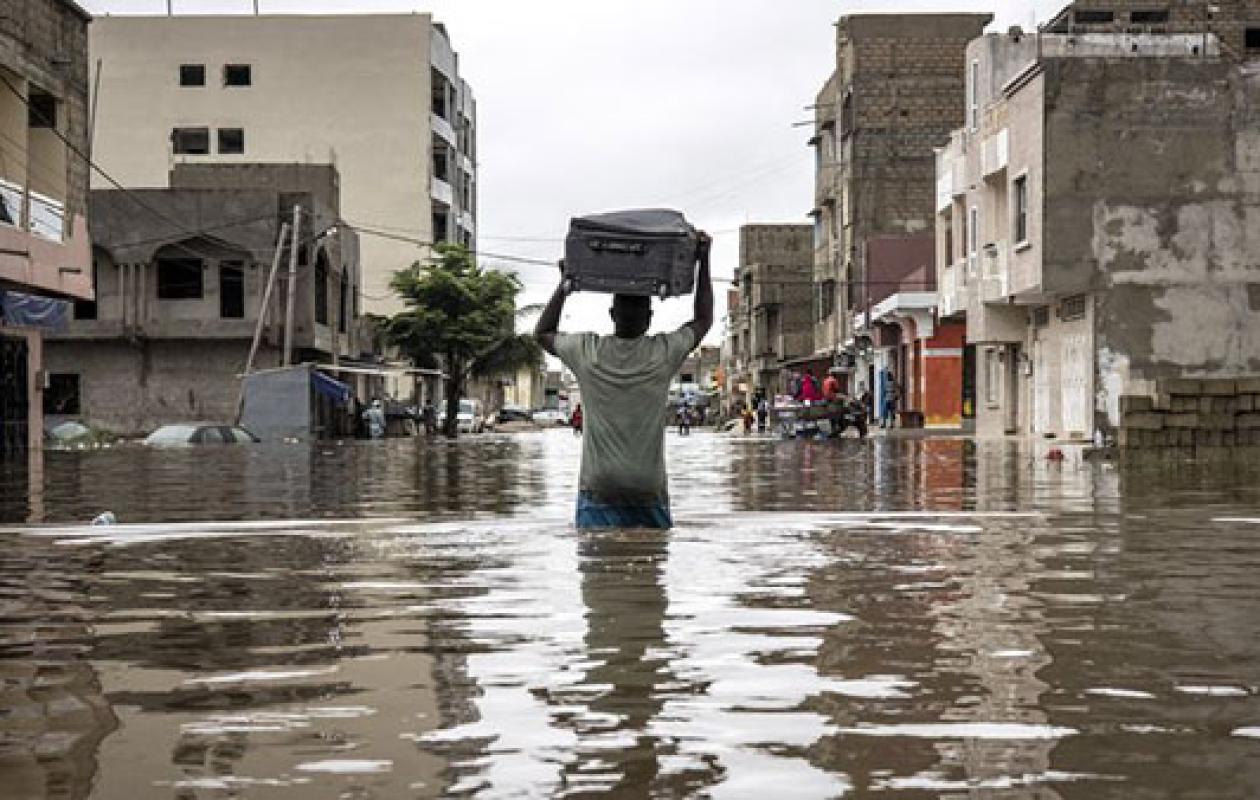
L’assainissement au Sénégal : Bien plus que la lutte contre les inondations
For many Senegalese, sanitation is all about flooding. But according to Omar Sène, Director of Sanitation, the reality is much broader. "Sanitation is everything related to wastewater and stormwater management. Flooding is only part of the problem," he said.
This was part of the second capacity building session for journalists on the issue of sanitation in Senegal.
Indeed, the Senegalese government has been deploying two major strategies for several years, based on awareness-raising through community-led total sanitation (CLTS) (a method inspired by India and implemented for the first time in 2009 in Bani Israël, in the Tambacounda region).
The goal is to eradicate open defecation. To date, more than 8,000 villages have been enrolled, out of a target of 11,000.
The second strategy is direct support to households. Every year, thousands of toilets are built in rural areas. In 2025 alone, more than 1,000 latrines were built, improving the daily lives of nearly 10,000 people.
Moreover, notes the Director of Sanitation, the open defecation rate has fallen from 30% in 2011 to 8.3% in 2025. "The overall rate of access to sanitation is now 61.2%, compared to only 26% in 2005. In urban areas, access reaches 71.7%, while in rural areas it is 56.2%. This progress is reflected in a significant reduction in diarrheal diseases, which are particularly common in communities without toilets," he assures.
Senegal, African leader
Since 2018, Senegal has dedicated more than 0.5% of its GDP to sanitation, exceeding the Ngor commitments made in 2015. This level of investment places the country among the African leaders in the sector, with international recognition.
During this training, a module on sanitation policing was presented to journalists. Indeed, to better oversee these efforts, Senegal established sanitation policing in 2022, as provided for in the current code. Trained and sworn officers are deployed in several pilot cities, including Dakar (Mbao, Rufisque), Saint-Louis, Diourbel, Thiès, Kaolack, and Ziguinchor.
For now, the approach remains educational: educate first, punish later. One of the main challenges is convincing people not to dump solid waste into the sewer system, a recurring cause of blockages and costly cleaning operations.
Despite progress, network maintenance and behavioral change remain crucial challenges. As Omar Sène emphasizes, "there will come a time when the law will have to be applied in all its rigor."
Commentaires (0)
Participer à la Discussion
Règles de la communauté :
💡 Astuce : Utilisez des emojis depuis votre téléphone ou le module emoji ci-dessous. Cliquez sur GIF pour ajouter un GIF animé. Collez un lien X/Twitter, TikTok ou Instagram pour l'afficher automatiquement.